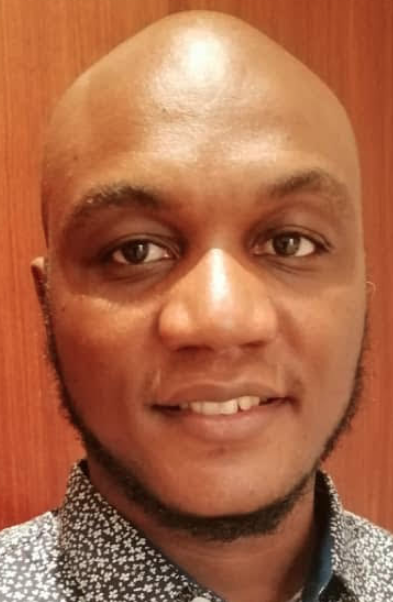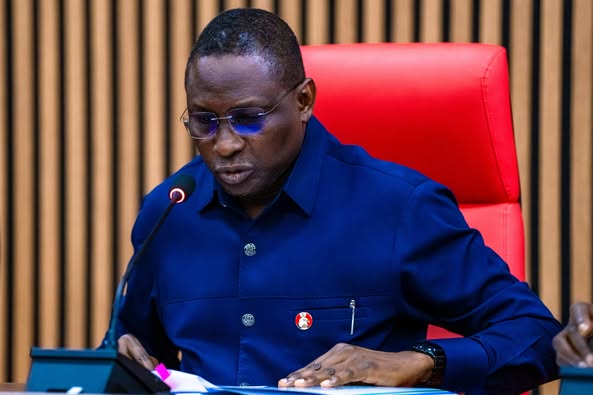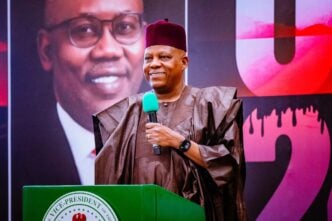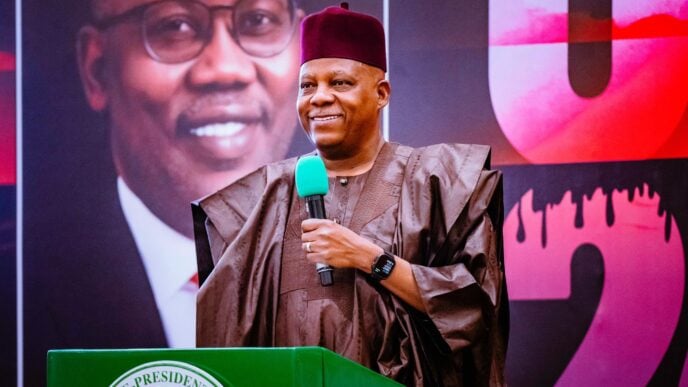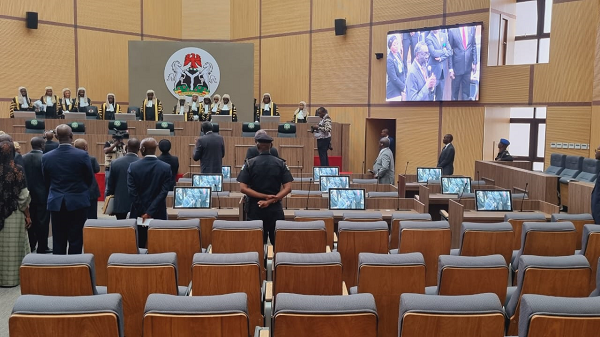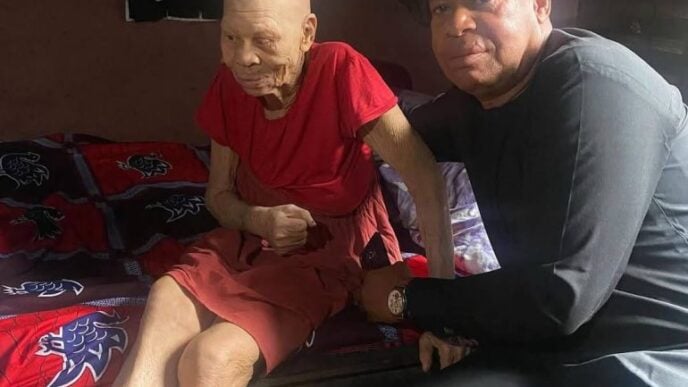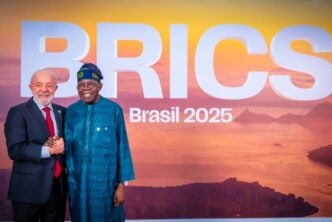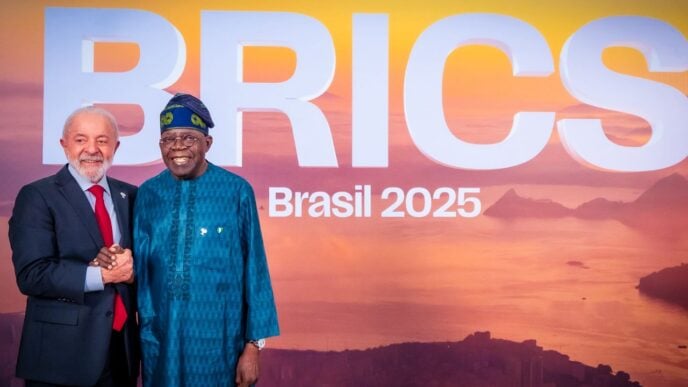Last week, EFCC chairman Ola Olukoyede made another passionate appeal to the national assembly to pass the unexplained wealth bill. For over a year now, he has been begging our lawmakers to criminalise unexplained wealth, and frankly, I don’t blame him.
I am 100 percent in support of the bill. We have too many overnight millionaires in Nigeria whose lifestyles don’t match their known sources of income. How does a civil servant earning N200,000 monthly suddenly acquire properties worth N500 million? How does a fresh graduate driving a N50 million car explain his source of wealth? These are the questions we need to answer.
The EFCC boss painted a disturbing picture of corruption in the oil and gas sector, describing findings from recent investigations as “mind-boggling.” According to him, what they’ve discovered is just the tip of the iceberg. Imagine what lies beneath if this is what we see at the surface.
Come to think of it, this unexplained wealth epidemic has become so pervasive that parents now enroll their children in “yahoo academies” to perfect their cybercrime skills. We have teenagers driving the latest Benz cars while their parents proudly show off their new gele at social gatherings. What kind of society are we building?
Advertisement
The connection between corruption and insecurity that Olukoyede highlighted is spot on. When you trace banditry, kidnapping, and terrorism back to their roots, you’ll find a pattern of corrupt practices and diversion of funds meant to improve people’s lives.
The money stolen from education, healthcare, and infrastructure ends up creating the very problems we’re fighting today.
But here’s where I think we need to be careful. While I strongly support the unexplained wealth bill, I am also tempted to ask: Can we also have a bill that investigates unexplained poverty?
Advertisement
The last time I checked, 80 million Nigerians are suffering from multidimensional poverty. To put this in proper perspective, the number of poor people in Nigeria is more than the entire population of the United Kingdom, which is 68 million. It’s also more than the population of many European countries combined. We are sitting on a time bomb.
As we deliberate on unexplained wealth, shouldn’t we also investigate the source of poverty of 80 million people? Why do we have over 15 million out-of-school children? Why is basic healthcare a mirage for the average Nigerian? Why have we failed to generate more than 5,000MW of electricity after spending billions on power sector reform?
Don’t get me wrong – I understand the frustration of the EFCC chairman. The man has been traveling around the globe chasing Nigeria’s stolen assets. He even mentioned an ambassador telling him about an estate in Iceland owned by a Nigerian. Iceland of all places! The audacity of these thieves is mind-boggling.
His criticism of foreign countries for making asset recovery difficult is also valid. At the UN forum last December, he boldly told them that if they’re holding onto Nigeria’s stolen assets, he sees them as accessories after the fact. They grumbled, but he didn’t care – and I respect him for that.
Advertisement
However, we must ask ourselves: Why are we always playing catch-up? Why are we always chasing stolen wealth instead of preventing the theft in the first place? The problem is not just about lack of laws – it’s about enforcement and political will.
Look at our politicians who earn salaries and allowances that can’t buy the cars they drive or the houses they acquire. Yet, they walk around with their heads held high, attending social events and religious gatherings as if nothing happened. Some even have the audacity to seek re-election.
The truth is, the unexplained wealth bill is a step in the right direction, but it’s not the magic wand that will solve our corruption problem. We need to address the systemic issues that make corruption attractive in the first place.
First, we need to pay our public servants living wages. You can’t pay someone N50,000 monthly and expect them to maintain integrity when they see billions flying around. When survival becomes the primary concern, ethics takes a backseat.
Advertisement
Second, we need to strengthen our institutions. The EFCC, ICPC, and other anti-corruption agencies should be truly independent, not extensions of the presidency. When these agencies become tools for political witch-hunts, their credibility suffers.
Third, we need to address the structural inequalities that make corruption seem like the only way out for many Nigerians. When young people see that hard work and education don’t guarantee success, they naturally gravitate toward shortcuts.
Advertisement
The EFCC chairman is right when he says Nigeria has no business borrowing money if we can stamp out corruption to the barest minimum. But stamping out corruption requires more than just laws – it requires a complete overhaul of our value system.
We need to stop celebrating wealth without questioning its source. We need to stop giving chieftaincy titles to people whose only achievement is accumulating unexplained wealth.
Advertisement
We need to teach our children that integrity pays, even if it takes longer.
As we push for the unexplained wealth bill, let’s also push for transparency in governance. Let’s demand that our leaders publish their assets and explain any significant changes in their wealth. Let’s make corruption unattractive by celebrating honest achievement.
Advertisement
The bill should pass, no doubt about it. But let’s not fool ourselves into thinking it will solve our corruption problem overnight. Real change starts with us – the citizens who vote these leaders into office and the society that celebrates ill-gotten wealth.
Until we address both unexplained wealth and unexplained poverty with equal vigor, we’ll continue to chase shadows while the real problems persist. The choice is ours to make.
Views expressed by contributors are strictly personal and not of TheCable.
